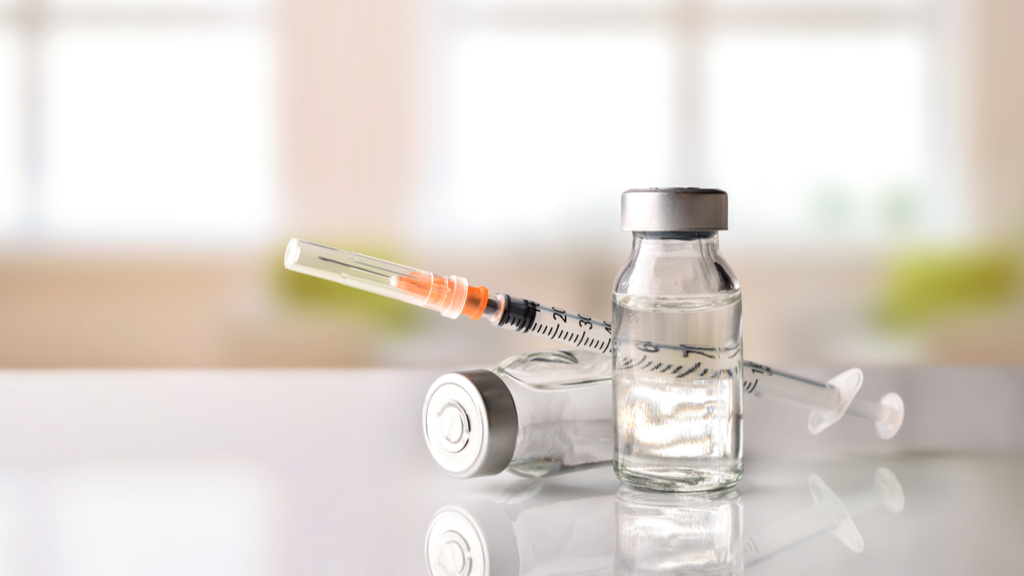A shot taken every 2 months could prevent HIV

Get the world’s most fascinating discoveries delivered straight to your inbox.
You are now subscribed
Your newsletter sign-up was successful
Want to add more newsletters?

Delivered Daily
Daily Newsletter
Sign up for the latest discoveries, groundbreaking research and fascinating breakthroughs that impact you and the wider world direct to your inbox.

Once a week
Life's Little Mysteries
Feed your curiosity with an exclusive mystery every week, solved with science and delivered direct to your inbox before it's seen anywhere else.

Once a week
How It Works
Sign up to our free science & technology newsletter for your weekly fix of fascinating articles, quick quizzes, amazing images, and more

Delivered daily
Space.com Newsletter
Breaking space news, the latest updates on rocket launches, skywatching events and more!

Once a month
Watch This Space
Sign up to our monthly entertainment newsletter to keep up with all our coverage of the latest sci-fi and space movies, tv shows, games and books.

Once a week
Night Sky This Week
Discover this week's must-see night sky events, moon phases, and stunning astrophotos. Sign up for our skywatching newsletter and explore the universe with us!
Join the club
Get full access to premium articles, exclusive features and a growing list of member rewards.
A shot to prevent HIV has outperformed the prescription pill normally taken for the same purpose in a large clinical trial, The New York Times reported.
The injectable medication, taken once every two months, could provide an "appealing new option" for HIV prevention, as compared with pills that must be taken daily, Dr. Monica Gandhi, a researcher at the University of California, San Francisco, told the Times.
Currently, the pharmaceutical company Gilead Sciences makes the only two HIV prevention pills on the market, known as Truvada and Descovy. The pills offer what's known as pre-exposure prophylaxis (PrEP), meaning a person takes it to prevent infection should they become exposed to HIV. But PrEP pills must be taken daily to keep blood levels of the medication high enough to block the virus, according to the U.S. Centers for Disease Control and Prevention (CDC). Taking PrEP pills daily can reduce the chance of getting HIV by about 99% — but that's only if people stick to the daily regimen.
Related: 20 of the worst epidemics and pandemics in history
Truvada and Descovy also come with a high price tag, which may limit widespread use of PrEP, especially in poor countries, according to The New York Times. Without insurance, a 30-day supply of either pill can cost between $1,600 and $2,000, although some qualify to get the drugs for free or reduced cost in the U.S., PBS NewsHour reported.
But soon, people may be able to opt for the new injectable drug, called cabotegravir, to protect themselves from HIV. A large clinical trial suggests that the shot is about 66% more effective than Truvada at preventing HIV infection in a real-world scenario, the Times reported. The findings, presented at the AIDS 2020 virtual conference, are "revolutionary," Dr. Rochelle Walensky, a researcher at Harvard University, told The New York Times.
The trial, conducted by a scientific collaborative called the HIV Prevention Trials Network, included nearly 4,600 cisgender men and transgender women who have sex with men from seven different countries. ViiV Healthcare, the pharmaceutical company that developed cabotegravir, made sure that at least half of the participants from the U.S. were Black men who have sex with men, representing the group most severely affected by HIV/AIDS in the country, according to The New York Times.
Get the world’s most fascinating discoveries delivered straight to your inbox.
The trial had two groups: one that received cabotegravir and another that took Truvada. The study was blinded, so that people in the Truvada group got a placebo shot, while those in the cabotegravir group took placebo pills, and neither the participants nor the trial conductors knew who was getting what, according to ClinicalTrials.gov. Whereas 13 participants who received cabotegravir contracted HIV, 39 who took Truvada became infected.
Related: UK man becomes second person cured of HIV after 30 months virus-free
In addition, in a sample of 372 people who took Truvada, blood tests demonstrated that only 75% took the pills consistently. When only compared with patients who took Truvada exactly as prescribed, cabotegravir was still more effective at preventing infection. While cabotegravir still requires patients to stick to a schedule, Gandhi suggested that health care facilities could offer short appointment slots solely for the shot, or that the shots could be given at pharmacies or from mobile vans, the Times reported.
Cabotegravir is also being tested among women in sub-Saharan Africa, but it has taken longer to enroll participants, the Times reported. The drug has not yet been tested in transgender men.
If cabotegravir is approved by the U.S. Food and Drug Administration in the next year or two, the drug could compete with a generic formation of Truvada, which is expected to become available in 2021, Walensky noted. With this in mind, ViiV Healthcare should set their price low, as competitors' drugs will likely grow less and less expensive, she said.
"It's exciting to have another pharma company in the PrEP mix," Walensky told the Times. "This will create competition and ideally drive costs down."
Originally published on Live Science.

Nicoletta Lanese is the health channel editor at Live Science and was previously a news editor and staff writer at the site. She holds a graduate certificate in science communication from UC Santa Cruz and degrees in neuroscience and dance from the University of Florida. Her work has appeared in The Scientist, Science News, the Mercury News, Mongabay and Stanford Medicine Magazine, among other outlets. Based in NYC, she also remains heavily involved in dance and performs in local choreographers' work.
 Live Science Plus
Live Science Plus










